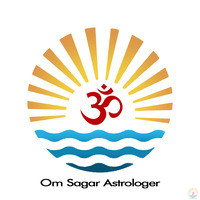Jyotish, often referred to as Vedic astrology, is an ancient Indian system of astrology that provides insights into various aspects of life based on the positions and movements of celestial bodies. The term “Jyotish” translates to “science of light,” which signifies its role in illuminating and guiding individuals through the complexities of life. This astrological system is deeply rooted in the Vedic tradition and is considered a crucial tool for understanding one’s destiny, personality traits, and future events.

Origins of Jyotish
Historical Roots: Jyotish has its origins in the Vedic texts of ancient India, specifically the Vedas, which are the oldest sacred scriptures of Hinduism. The practice of Jyotish is believed to have been formalized around 5,000 years ago, with its principles and methods being described in various ancient texts such as the “Brihat Parashara Hora Shastra,” written by the sage Parashara. These texts outline the fundamental concepts of Vedic astrology, including the influence of planetary positions on human affairs.
Philosophical Foundations: The philosophical underpinnings of Jyotish are closely linked to the belief in karma and reincarnation. According to Vedic philosophy, the positions of celestial bodies at the time of one’s birth can reveal insights into past actions (karma) and their impact on the present and future. Jyotish is thus used to understand and address the influences of these cosmic energies on an individual’s life, including their relationships, career, health, and personal growth.
Core Components of Jyotish
1. Horoscopes and Natal Charts: At the heart of Jyotish are horoscopes and natal charts, which are detailed maps of the positions of planets and stars at the time of an individual’s birth. These charts provide valuable insights into personality traits, life events, and potential challenges.
2. Planetary Influences: Jyotish focuses on the influence of planets such as the Sun, Moon, Mars, Venus, Mercury, Jupiter, Saturn, and the lunar nodes (Rahu and Ketu) on human life. Each planet is associated with specific attributes and effects that shape various aspects of life.
3. Dasha System: The Dasha system is a unique feature of Vedic astrology that analyzes the timing of planetary periods and their impact on an individual’s life. This system helps predict significant life events and transitions.
4. Remedies and Solutions: Jyotish also offers remedies and solutions to mitigate negative influences and enhance positive outcomes. These may include specific rituals, mantras, gemstones, and lifestyle changes tailored to an individual’s astrological chart.
Role of a Love Problem Specialist in Varanasi
As a love problem specialist in Varanasi, integrating Jyotish into relationship counseling provides a holistic approach to resolving love and relationship issues. By analyzing the astrological charts of individuals involved in a relationship, we can gain insights into compatibility, emotional dynamics, and potential challenges. This understanding allows us to offer personalized advice and remedies to improve relationship harmony, address conflicts, and foster deeper connections.
Astrological Insights for Love Problems
1. Compatibility Analysis: Jyotish helps assess the compatibility between partners by comparing their horoscopes. This analysis reveals how well their planetary influences align and identifies areas where they may need to work on improving their relationship.
2. Timing of Events: Understanding the timing of planetary periods can provide insights into when to take specific actions or make decisions related to the relationship. This can help in planning important milestones or addressing issues at the most opportune times.
3. Personalized Remedies: Based on the astrological analysis, personalized remedies such as wearing specific gemstones, chanting mantras, or performing rituals can be recommended to alleviate negative influences and enhance positive energies in the relationship.
BLOG
Top Astrologer In Bhopal
Top Astrologer in Bhopal
Love Problem Solution In Dadar
Love Back expert Astrologer in faridabad
Best Tantrik
Top Astrologer

